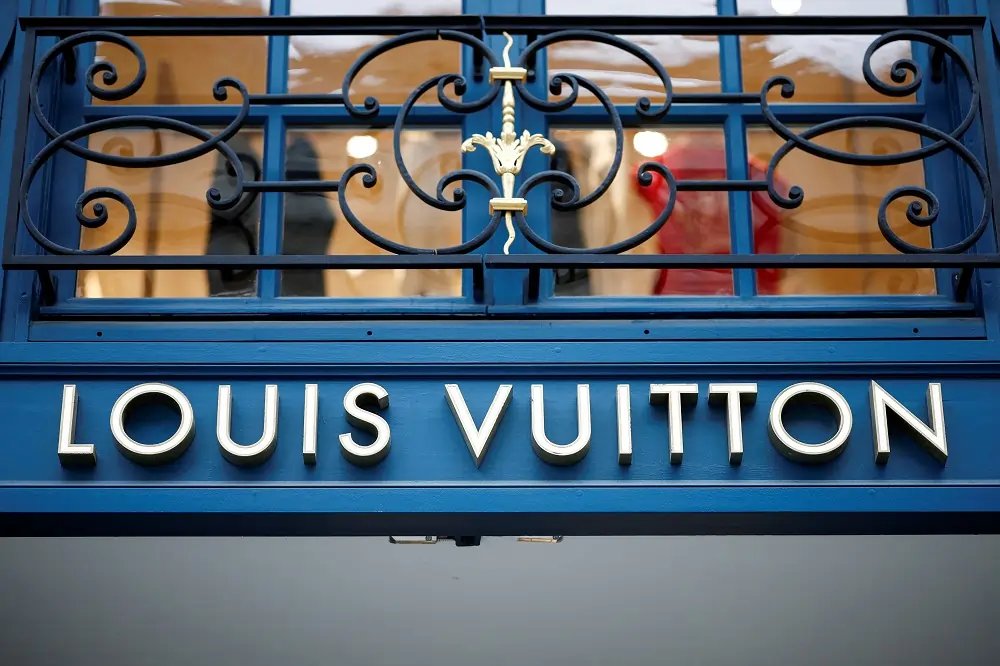LVMH results prompt $70 billion buying spree in luxury shares


By Mimosa Spencer
PARIS (Reuters) -Investors dived back into top luxury shares on Friday, adding some $70 billion to their market value as LVMH’s latest sales figures reassured investors about the sector’s resilience to economic headwinds, particularly in China.
The buying spree helped recoup some of last year’s losses after China’s economic revival proved lacklustre following the lifting of COVID-19 restrictions.
Shares in LVMH jumped as much as 11%, adding about $30 billion to its own stock market value and boosting peers of the French luxury giant including Kering and Hermes.
That helped lift the pan-European STOXX 600 index to its highest level in two years.
LVMH, home to brands including Louis Vuitton, Christian Dior, Moet Hennessy and Tiffany & Co, posted a 10% rise in fourth-quarter sales on Thursday, driven by resilient demand for its high-end fashion over the end-of-year trading period.
Investors had grown skittish about the industry’s prospects following LVMH’s previous report in October which showed its sales growth slowed to 9% after a long spell of routinely outpacing expectations with strong double-digit growth.
At a results presentation on Thursday, LVMH Chairman and CEO Bernard Arnault said he was happy with the company’s current growth rate.
With its latest report, LVMH “reassured – and coped nicely with a sharp slowdown in sales momentum” in the second half, Jefferies analyst James Grzinic wrote in a note to clients, adding the report should “steady nerves in the near term”.
CHINESE DEMAND
Appetite from Chinese shoppers for European fashion brands has been a key source of concern for investors in recent months, as a property crisis and high youth unemployment dashed hopes for a strong rebound, while the return of travelling Chinese beyond Asia has been slower than initially expected.
Executives at LVMH said it was hard to measure Chinese demand as they have begun travelling outside of mainland China to places like Hong Kong and Macau, but noted that the group has twice as many Chinese customers as it did in 2019.
“We’re not particularly concerned,” said LVMH chief financial officer Jean-Jacques Guiony.
While large bus loads of Chinese customers are no longer arriving in Europe, the group is doing brisk business with wealthier Chinese customers, with LVMH’s biggest label LVMH reaching sales levels with Chinese in France and Europe of 70% of 2019 levels.
The luxury goods industry had come to rely on fast growth in China, where over the span of five years, from 2017 to 2021, the luxury market tripled in size, according to Bain.
Chinese luxury consumption is expected to reach 35-40% of the world’s total, with mainland China one of the leading global markets reaching a 24%-26% share by 2030, according to Bain.
As the sector comes down from the high paced growth seen after the pandemic, the diverging fortunes of brands has come into view, with those catering to wealthier clients, like Hermes, better equipped for economic challenges than those pursuing turnarounds, like Burberry, which issued a profit warning earlier this month.
But shares of Burberry also traded higher on Friday, up 2.9%.
LVMH was the top gainer on the euro-zone blue-chip STOXX50E index.
Friday’s gains added about $70 billion to the value of the top luxury and drinks companies, including LVMH, Gucci-owner Kering, Hermes, Pernod, Remy, Cartier-owner Richemont and Moncler, according to Reuters calculations.
(Reporting by Tassilo Hummel, Mimosa Spencer and Josephine Mason; Editing by Jason Neely and Mark Potter, Elaine Hardcastle)
LVMH Moët Hennessy Louis Vuitton is a French multinational luxury goods conglomerate, known for its high-end fashion brands, wines, and spirits.
Luxury goods are high-quality products that are not essential but are desired for their quality, exclusivity, and prestige.
Market value refers to the total worth of a company or asset as determined by the stock market, reflecting the price at which it can be bought or sold.
Economic growth is the increase in the production of goods and services in an economy over a period, typically measured by GDP.
Investor confidence is the degree of optimism that investors feel about the overall state of the financial markets and the economy.
Explore more articles in the Top Stories category











